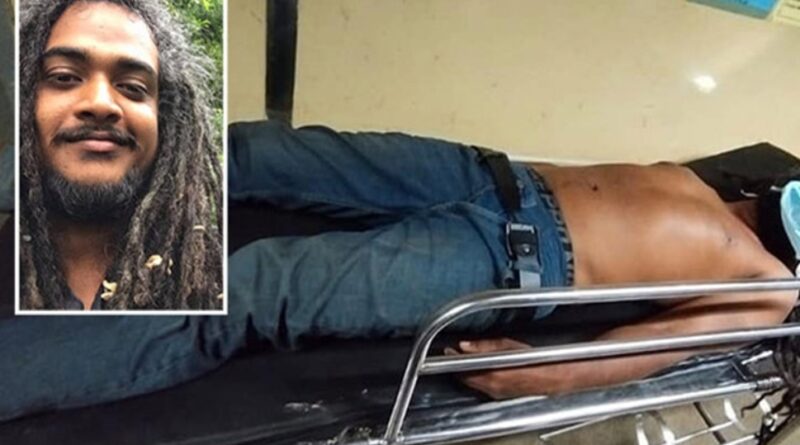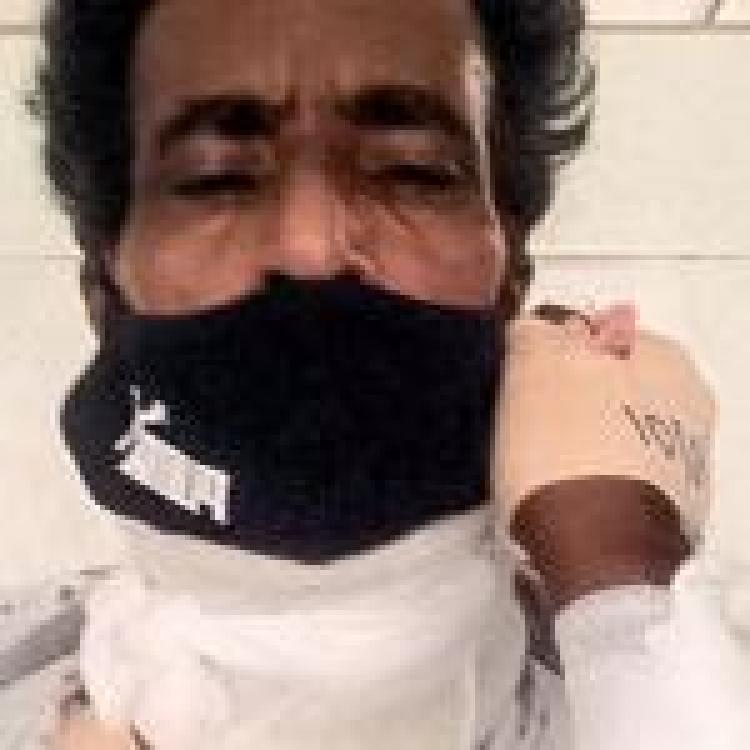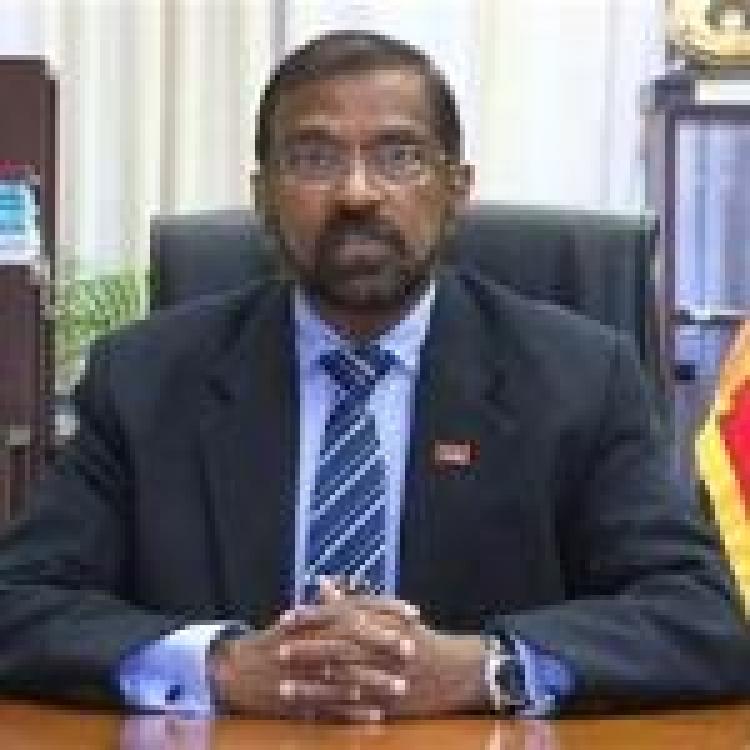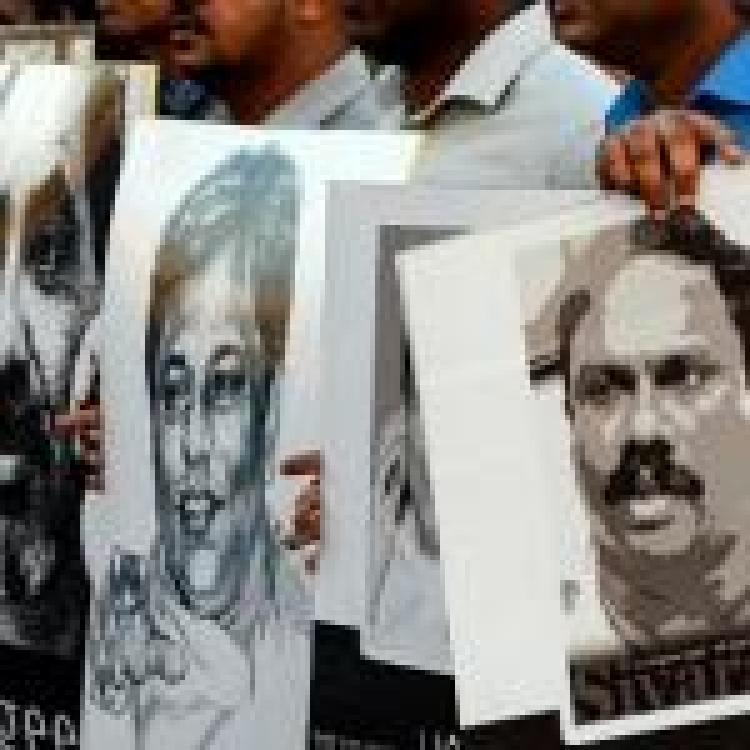
Freelance Journalist Malika Abeykoon, who was assaulted and arrested by Sri Lankan police on April 7 has been granted bail after being held in detention.
Abeykoon was arrested while he was covering a health workers’ protest rally organised by the United Health Workers Union (UHWU) on April 7. Following his arrest, he was brutally assaulted whilst being detained inside Maradana Police station.
According to the Free Media Movement (FMM), a media freedom watch organisations of journalists from Sri Lanka, Abeykoon was put before the Maligakanda Magistrates Court on April 8 with a fabricated medical report signed by a judicial medical officer stating that he had not been assaulted. In response to this Abeykoon removed his shirt and showed the judge the bruises and scars.
Following his release on 17 April, Malika Abeykoon said “I was beaten up by a senior inspector of the police. He punched my head till I felt dizzy. Kicked me in the chest. He did so many things”.
This is what Social #Activist Malika Abeykoon AKA Macca said about getting beaten up by the #police after he got bailed yesterday.
— Prasad Welikumbura (@Welikumbura) April 17, 2021
(Thread)#activists #lka #SriLanka #HumanRight #PoliceBrutality #Revolution pic.twitter.com/vR7dPE9APi
Journalists who are critical of the Sri Lankan government continue to be at an increased risk of harassment and assault by state forces, in a recent upsurge of attacks on media workers. Tamil journalists are particularly at risk with at least 41 media workers known to have been killed by the Sri Lankan state or its paramilitaries during and after the armed conflict.
The notorious Prevention of Terrorism Act (PTA) is often used to target Tamil journalist in what Reporters Without Borders (RSF) describe as “Kafakesque terrorism charges”. Murugupillai Kokulathasan, locally known as Kokul, a photographer attached to Batticaloa Press Club was arrested on November 28, 2020 by the Sri Lankan Terrorism Investigation Department (TID) over allegations he had published pictures of the Liberation Tigers of Tamil Eelam (LTTE) on Facebook, he continues to be detained. In January 2020, Tamil Journalists in Batticaloa were sent death threats with leaflets of their photographs threatening that they would be executed. The leaflets targeted a few journalists who held a commemoration event for murdered Sinhala journalists Lasantha Wickrematunge
Read more at the International Federation of Journalists.




